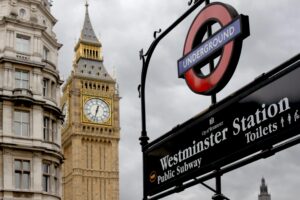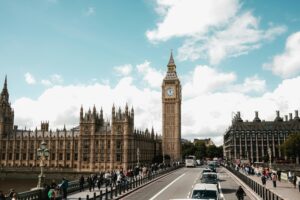
An update from our Parlimentary Advisors
The House of Commons held a second reading of the Bus Services (No. 2) Bill [Lords]. Presenting the Bill, Secretary of State for Transport, Heidi Alexander, stated that it will be giving local transport authorities the power to determine socially necessary local services, leading to greater access to employment, jobs, health facilities, and education. She argued that the previous government had left a “broken” bus system, and that the Bill will expand the options available to local authorities so that each area has the bus service that is right for it, while also safeguarding the needs of passengers, particularly the most vulnerable. She added an emphasis on transitioning to net-zero buses.
Relevant contributions relating to older people are as follows:
Ellie Chowns (GP, North Herefordshire)
- Does the Secretary of State recognise that rural constituencies such as mine have particular needs, and that the funding needs to reflect the extra costs associated with rurality, as well as the demographic demands? Young people, older people and people on low incomes rely on buses more than others. Will those factors be taken into account in the funding mechanisms for bus services?
- Heidi Alexander assured that these factors would be taken into account during funding allocations.
Steff Aquarone (LD, North Norfolk)
- Local buses are an antidote to loneliness, allowing people to see their friends and family and to take part in community groups and activities.
- They also have to get our older people to their vital medical appointments. For example, to get to the main hospital in Norwich, someone has to go all the way into the city centre and change buses. That means that bus users in most of my constituency can attend a clinic only in the middle of a whole-day trip.
- If only the local authority had the power to design the routes and times that work for the needs of the population—putting on direct services between busy hubs, for instance. This is the problem: for far too long, the importance of bus networks in our area has not been reflected in how they have been treated by those in power.
Helen Morgan (LD, North Shropshire)
- Older or disabled constituents who are no longer able to drive, or simply cannot afford to, are fully dependent on family members and friends to get them to where they need to be. I think everybody in this House would agree that this is driving deep and fundamental inequality, as well as holding back the economy in rural areas. That is why I am broadly supportive of this Bill.
Dr Marie Tidball (Lab, Penistone and Stocksbridge)
- Older and disabled constituents often tell me that they are left stranded, enduring painfully long waiting times due to unreliable services, and facing distressing situations including toileting issues and missed NHS appointments because buses simply fail to appear. That is unacceptable.
- That is why it is right that the Bill will deliver a more accessible and inclusive bus network, as well as introducing a £3 maximum cap on bus fares until 2026, to encourage more people to use public transport.
Caroline Voaden (LD, South Devon)
- Buses are often seen as a service for the elderly, and they are vital for older residents, especially in rural areas where isolation poses a serious threat to health. Buses can be a social lifeline, but in those rural communities they are also a vital connection to education, healthcare and work.
- The number of bus journeys in Devon has fallen by 40% since 2015, and in my large rural constituency many communities have been left behind by unreliable, infrequent or inadequate bus services. Many villages have no bus service at all, while others feel lucky to get one a day.
Emma Foody (Lab, Cramlington and Killingworth)
- For my Cramlington and Killingworth constituency, like for so many others as we have heard today, buses are vital. They are often the only source of public transport. They are essential for accessing work, health appointments or seeing family and friends.
- That is why I launched my big bus survey earlier this year, hearing from hundreds of residents. The response was clear: too many people feel let down due to unreliable and inaccessible transport. That is especially true for people with disabilities, families and older people.
Julia Buckley (Lab, Shrewsbury)
- The lack of evening services puts severe constraints on our night-time economy and the potential for residents to get home safely after work, travel or an evening out. Not everyone can afford to run a car or is medically able to drive. The population in Shropshire is nine years older than the national average, so many older residents have given up their vehicles and find themselves stranded in the evenings and at weekends. In some villages, they are left completely socially isolated.
- One of my constituents, Christine Hart, is in her 70s, lives in a residential suburb of Shrewsbury, and is a very active volunteer in her local community. Following her knee replacement operation last month, she became reliant on buses. She could not be happier with our new on-demand electric minibuses in her area funded via the Government’s bus service improvement plan. She is such a convert that she plans to keep using them even after her recovery. However, she explained to me that although she could get to a 5 pm doctor’s appointment, she has no way of getting home because there are no evening buses in Shrewsbury.
Simon Lightwood, the Parliamentary Under-Secretary of State for Transport
- The bill aims to give local leaders more control over bus services in their areas. By doing so, local authorities will have more flexibility to design networks that best serve their communities. This approach acknowledges that local leaders are in the best position to make decisions about public transport.
- The government has acknowledged concerns regarding the accessibility of floating bus stops and is committed to making all bus stations and stops accessible. There is an ongoing effort to gather more evidence and work with organisations like Active Travel England and Transport for London to improve designs and ensure safety.
- Reforms will have a focus on local control, affordability, accessibility, and the transition to zero-emission buses.
The following points were also made on floating bus stops specifically:
Dame Meg Hillier (Lab, Hackney South and Shoreditch)
- In London we have benefited for a long time from bus services that are better than those in the rest of the country, and I wholeheartedly welcome my right hon. Friend’s desire to level that up, but in London we also have floating bus stops. I know that matching the needs of cyclists, of whom I am one, with those of others involves a delicate balance, but for someone who is blind, visually impaired or encumbered by, for instance, a buggy, getting off a bus at a floating bus stop is very dangerous. What plans has my right hon. Friend to tackle the issue across the country?
Marsha De Cordova (Lab, Battersea)
- I am pleased to hear that the Bill requires guidance to be produced to enable authorities to make floating bus stops safe and accessible, but many blind and partially sighted people, including me, have experienced problems with them. Could a proper assessment of their safety be carried out to ensure that no passenger who uses a bus, whether it is to go to work or to attend a health appointment, will experience the challenges that so many people currently experience when trying to navigate them?
In response to both, Heidi Alexander assured that the Bill would commit to producing design guidance for local authorities so that they can look at what is best practice. There is also a commitment to a non-statutory pause on the type of floating bus stop that requires a passenger to alight directly on a cycle lane.
The following written questions of interest have also been answered:
Sir Mel Stride (Con, Central Devon): To ask the Chancellor of the Exchequer, if she will make it her Department’s policy to announce changes to winter fuel payments at fiscal events.
Darren Jones (Lab, Bristol North West): This Government remains absolutely committed to supporting pensioners and giving them the dignity and security they deserve in retirement. The Government took the right action last July to support the public finances. Tough but fair decisions were taken, including making sure Winter Fuel Payments would be targeted at those with the highest need. That principle still stands. As the economy improves, the Government wants to make sure people feel those improvements. The Government wants to ensure that more pensioners are eligible for Winter Fuel Payments.
Adam Jogee (Lab, Newcastle-under-Lyme): To ask the Secretary of State for Health and Social Care, if he will support the aims of Age Without Limits Day.
Stephen Kinnock (Lab, Aberafan Maesteg): Age Without Limits Day is the Centre for Healthy Aging’s event which aims to challenge ageism across the country through community and workplace activities. More information is available at the following link.
The Department is committed to improving outcomes for older people through a range of cross-cutting strategies and initiatives. It is embedding a focus on health inequalities across its work, including through the Core20PLUS5 approach in the National Health Service, which includes older age-related conditions such as dementia. It is also supporting improvements in adult social care to promote choice and to help people live as independent and fulfilling lives as possible.
Sir Julian Lewis (Con, New Forest East): To ask the Secretary of State for the Home Department, what her policy is on the (a) removal and (b) retention of police widows pensions when those in receipt of such pensions (i) cohabit and (ii) remarry.
Dame Diana Johnson (Lab, Kingston upon Hull North and Cottingham): The 2015 police pension scheme is the scheme currently open to serving police officers. This scheme provides life-long survivor benefits for spouses, civil partners and unmarried partners, including those who remarry or cohabit after losing a spouse. The introduction of the 2006 police pension scheme meant that all eligible police officers were able to join a pension scheme with such survivor benefits.
Prior to 2006, the 1987 police pension scheme provides a pension for the widow, widower or civil partner of a police officer who dies. In common with most other public service pension schemes of that time, these benefits cease to be payable where the widow, widower or civil partner remarries or cohabits with another partner. From 1 April 2015, the 1987 Police Pension Scheme was amended to allow widows, widowers and civil partners of police officers who have died as a result of an injury on duty to receive their survivor benefits for life regardless of remarriage, civil partnership or cohabitation.







